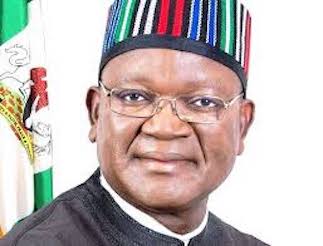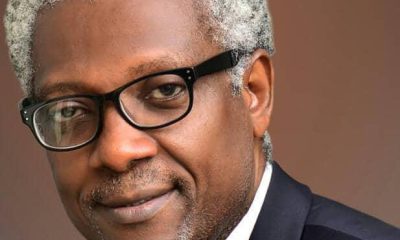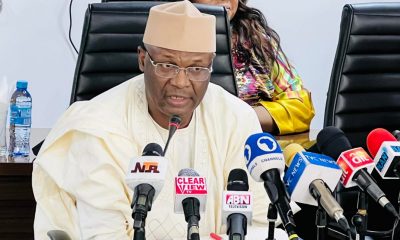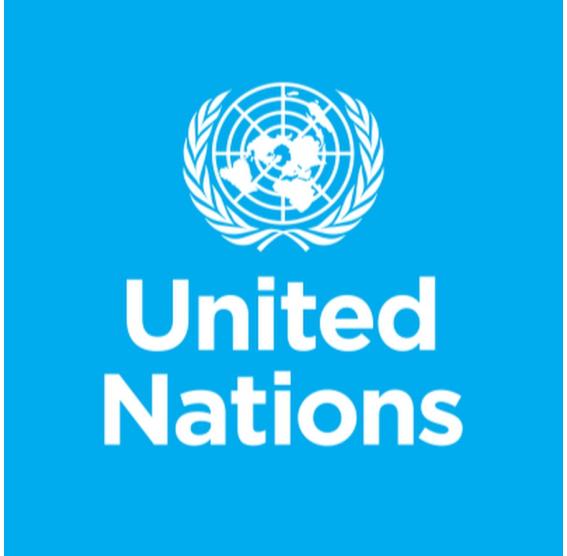COVER
Nigeria’s Debt to World Bank Increases by $1.3bn in One Year – DMO
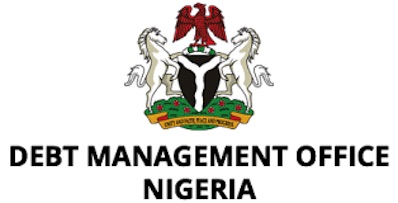
By Tony Obiechina, Abuja
The Debt Management Office has said that Nigeria’s total debt to the World Bank Group has increased by $1.
3bn in one year from $8.39 billion to $9.81 billion as at September 2019.The nation’s debt office disclosed this in its latest report said that Nigeria’s debt to the IDA and IBRD stood at $9.
41bn and N409. 51m as of September 30, 2019, compared to $8. 39bn and $124m in September 30, 2018.The debt office said new domestic borrowings this year (N1.59tn) would be raised through FGN Bonds, Sukuk, FGN Savings Bonds and possibly green bonds.
The International Bank for Reconstruction and Development and the International Development Association, which make up the World Bank, have over the years advanced loans to Nigeria.
The IBRD lends to governments of middle-income and creditworthy low-income countries while the IDA provides concessionary loans – called credits – and grants to governments of the poorest countries.
The total amount of loans approved by the World Bank for Nigeria had reached $24.68bn, data obtained from the multinational development bank showed.
As at December 31, 2019, the Africa’s largest economy had secured $7.14bn loans from the IBRD and $17.54bn loans from the IDA, according to the World Bank data.
The IBRD and IDA cancelled $971.04m and $1.77bn respectively of the approved loans.
The data showed that a total of $16.89bn had been disbursed to the country, with $5.72bn from the IBRD and $11.17bn from the IDA.
The country had repaid a total of $6.45bn to both institutions ($5.29bn to the IBRD and $1.16bn to the IDA).
The loans, many of which are still being disbursed, were approved for 177 projects in the country, with the first loan secured in 1947.
In November 2019, $75m was approved for the Second Africa Higher Education Centres of Excellence for Development Impact project.
In 2018, $27.4m was approved for the North Core/Dorsale Nord Regional Power Interconnector Project; $125m for the Fiscal Governance and Institutions Project; $225m for the Nigeria-Accelerating Nutrition Results;$150m for the Polio Eradication Support Project; and $100m for Nigeria for Women Project.
Other projects for which loans were approved in 2018 were the States’ Fiscal Transparency, Accountability and Sustainability PforR ($750m); Nigeria Electrification Project ($350m); NG-Electricity Transmission Project ($486m); and Nigeria Erosion and Watershed Management Project ($400m).
In 2017, $611m was approved for Better Education Service Delivery for All; $159m for the Nigeria: Mineral Sector Support for Economic Diversification Project; $90m for the Regional Disease Surveillance Systems Enhancement Phase II; $200m for the Multi-Sectoral Crisis Recovery Project for North Eastern Nigeria; and $200m for the Agro-Processing, Productivity Enhancement and Livelihood Improvement Support Project.
The nation’s total public debt rose to N26.22tn as of September 2019 from N25.70tn in the same period of 2018, according to the DMO.
According to the DMO the 2019 Appropriation Act provided for a total new borrowing of N1.61 trillion split equally between domestic and external debt, but only the domestic component of N802.82 billion was raised due to the late passage of the 2019 budget and the expectation that the implementation of the 2020 budget would commence on January 1.
It said total debt as a percentage of the GDP was 18.47 per cent as of September 2019 and was well within the limit of 25 per cent but “the low revenue base of Nigeria relative to its GDP is clearly reflected in the high debt service to revenue ratio.”
COVER
CBN Halts Extension of Export Proceeds Repatriation

The Central Bank of Nigeria has suspended approvals for the extension of export proceeds repatriation on behalf of exporters, effective immediately.
This directive, issued via a circular, applies to both oil and non-oil export transactions.
The apex bank explained that the move aims to enforce compliance with existing foreign exchange regulations.
Signed by the acting Director of the CBN’s Trade & Exchange Department, W.
J. Kanya, the circular outlined provisions in the Foreign Exchange Manual (Revised Edition, March 2018) as the basis for the decision.These provisions include Memorandum 10A (23a) and Memorandum 10B (20a).
The CBN stated that with immediate effect, it would no longer grant extensions for the repatriation of export proceeds requested by authorised dealer banks on behalf of their customers.
Exporters are now required to adhere strictly to the stipulated timelines for repatriation.
Proceeds from non-oil exports must be repatriated within 180 days from the bill of lading date, while oil and gas export proceeds must be repatriated within 90 days.
The apex bank stressed that these timelines are non-negotiable.
The circular said, “With effect from the date of this circular, the Central Bank of Nigeria will no longer approve requests for extension of repatriation of export proceeds by Authorized Dealers on behalf of their customers.
“For the avoidance of doubt, proceeds of oil and non-oil exports are to be repatriated and credited into the exporters’ export proceeds domiciliary accounts within 180 days and 90 days from the bill of lading date for Non-Oil and Oil & Gas exports, respectively.”
This development imposes stricter obligations on exporters and their authorised dealer banks to comply with the repatriation rules.
Banks are expected to notify their clients of the updated regulations and ensure adherence.
The CBN warned that non-compliance could attract penalties or other regulatory actions.
The policy is part of the CBN’s efforts to enhance foreign exchange inflows and bolster the country’s reserves.
Last year, the CBN introduced measures affecting international oil companies operating in Nigeria, limiting their ability to immediately remit 100 percent of forex proceeds to their parent companies abroad.
Instead, IOCs were required to repatriate 50 per cent of their proceeds immediately, with the remaining 50 per cent to be repatriated 90 days after the inflow.
Also, the CBN implemented new rules governing cash pooling by IOCs. These rules required prior approval from the CBN for repatriation under the cash pooling framework, alongside detailed statements of expenditure incurred before pooling.
Also, last year, the apex bank further clarified these measures, allowing IOCs to pool 50 per cent of their export proceeds while using the remaining funds to settle financial obligations within Nigeria over 90 days.
IOCs were also permitted to sell the 50 per cent balance of their repatriated proceeds to authorised foreign exchange dealers.
COVER
We’re Going to Produce Military Hardware Locally, by Tuggar
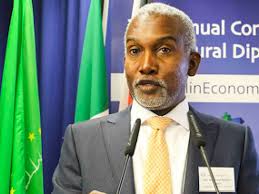
By Mike Odiakose, Abuja
To surmount the challenges that confront Nigeria while importing military equipment, the country will now resort to local production with the help of China, the Minister of Foreign Affairs, Ambassador Yusuf Tuggar said yesterday in Abuja.
The country always suffers delays importing military equipment due to so many rules and regulations in the international arena.
Speaking at a joint press briefing with his Chinese counterpart, Wang Yi, Tuggar said the Federal Government will work with China in domesticating production of military equipment to avoid the unnecessary delays in relying on foreign countries.
The China’s Minister of Foreign Affairs was on an official visit to Nigeria.
Tuggar lamented that private military companies have never helped Nigeria to tackle insecurity.
According to him, “Nigeria has consistently proved effective in leading other countries in our region, and I would even say, on the continent at large, in addressing challenges to peace and security.
“And we do this whenever we partner with other countries and have their support, including major powers that are outside of our region, outside of Africa, and we appreciate that sort of approach.
“And this is why we work well with countries like China. Where we have a problem is whenever Nigeria is left out of such arrangements, it becomes more challenging.
“And it’s not just a one-off thing. It’s not a fluke. It is because of Nigeria’s place and position on the continent and in our region. And that’s why we take a firm stand and say, let us work together towards solving our problems by ourselves.
“Let us shun this idea of allowing others to come in to solve our problems for us.
“So private military companies, as far as we are concerned, it doesn’t matter whether they’re from north, south, east, west; we don’t think it is going to provide the panacea.
“But when you work with us, then we’re able to lead others in solving the problem.
“Also, we want to work with countries like China in domesticating production of military equipment, both kinetic and non-kinetic.
“This is what we’re looking for. So that we don’t have to go out looking to procure because of the delays and so many rules and regulations. We need to be able to produce locally.
“Nigeria is a very responsible country working with the Constitution. And we’ve never had any expansionist tendencies, which is why others reposed so much confidence in us and in our leadership.
“We will continue to work with countries such as China in addressing these challenges and rely on countries such as China, also, to work with us towards ensuring that private military country companies outside interference remains outside.”
Similarly, the Chinese Minister of Foreign Affairs, Wang said the strategic plan of President Xi Jinping and President Tinubu, China-Nigeria relations have achieved three major outcomes.
“First, we have achieved a new leap in the characterization of our relations. Our presidents jointly announced the elevation of China-Nigeria relations to a comprehensive strategic partnership.
“Second, we have worked together to establish a new platform.
“The first plenary session of the Intergovernmental Committee between China and Nigeria has been successfully held, contributing to the elevation in quality of our cooperation.
“Third, our cooperation at the international arena has reached new heights. Our two sides have coordinated closely in international and regional affairs and worked together for the collective rise, development and vitalization of the Global South.
“Over more than half a century since the establishment of diplomatic ties, no matter how changes occur in the international landscape, China and Nigeria have always in the spirit of mutual respect and equality, deepened our friendship and pursued practical cooperation, setting a fine example of South-South cooperation, and an important exemplar of China Africa cooperation,” Wang stated.
He said under the guidance of the two presidents, the relationship between the two countries would continue to be strategic, exemplary, and provide momentum and confidence for high quality development of China-Africa cooperation and the modernization of Africa.
“I believe that through the joint efforts of the two sides, the China, Nigeria, comprehensive strategic partnership will surely embrace an even brighter tomorrow,” he said.
He expressed delight over Nigeria’s plan to float panda bond in China through its currency swap policy.
It would be recalled that Nigeria had proposed currency swap agreement with China.
In his words, “As with regard to Nigeria’s wish to increase the line of the currency swap, we’ll favorably study and consider the issue. Our cooperation is going well in many ways, in terms of finance.
“For instance, we welcome the panda bonds to be issued. We welcome Nigeria to issue panda bonds in China, because we have full confidence in Nigeria’s credibility.
“And by issuing panda bonds, Nigeria will gain good revenue and the safety is guaranteed through financial support, we are working to contribute to Nigeria’s infrastructure development in particular railway.”
COVER
UBA Emerges Top Five in Customer Experience Survey for Banks

By David Torough, Abuja
Africa’s Global Bank, United Bank for Africa (UBA) Plc has cemented its position as a leading customer-centric institution, emerging among the Top five banks, in various surveys’ segmentation in the recently released KPMG 2024 West Africa Banking Industry Customer Experience Survey.
The survey showed that the bank earned an impressive second place in SME Banking as well as a third place in Retail Banking, marking a significant leap in rankings that highlights UBA’s transformation under its Customer First (C1st) philosophy. Africa’s Global Bank, United Bank for Africa (UBA) Plc, has cemented its position as a leading customer-centric institution, emerging among the Top 5 banks, in various survey’s segmentation, in the recently released KPMG 2024 West Africa Banking Industry Customer Experience Survey.The survey showed that the bank earned an impressive second place in SME Banking as well as a third place in Retail Banking, marking a significant leap in rankings that highlights UBA’s transformation under its Customer First (C1st) philosophy.The survey results showcase UBA’s remarkable transformation in customer experience over the past year. For instance, in Retail Banking, the bank rose to third place up from the14th place recorded in 2023, while in SME Banking, it jumped to second position up from 6th place last year.The bank also made notable progress in Corporate Banking, climbing to fourth place from 8th in 2023. These milestones underscore the bank’s ability to consistently exceed customer expectations and deliver unmatched service across all its business segments.Speaking on the achievement, UBA’s Group Managing Director/CEO, Oliver Alawuba, said: “This recognition is a testament to our ability to turn aspirations into achievements and challenges into victories. At the heart of this success lies our unwavering commitment to the Customer First (C1st) philosophy. It is not just a slogan but the essence of who we are. Through C1st, we’ve redefined customer satisfaction, delivered value, and earned the trust and loyalty of our clients.”Alawuba who credited UBA’s success to the dedication of its employees, said, “From retail branches to corporate offices, from technology teams to front-line staff, every effort contributed to this extraordinary transformation. I extend my heartfelt gratitude to our exceptional team for making this possible.”According to the GMD, UBA has for several years, placed its customers at the centre of its operations, guided by its six pillars of Customer Experience: including Integrity- Building trust through honesty; Resolution- Promptly addressing customer concerns; Expectations-Anticipating and exceeding customer needs; Time and Effort- Simplifying processes to save time; Empathy- Demonstrating genuine care and understanding as well as Personalisation- Delivering tailored solutions.He added that these principles have reshaped how UBA connects with its customers, fostering trust and deepening loyalty across its diverse markets.While celebrating this milestone, the GMD disclosed that UBA remains committed to becoming the undisputed number one across all segments, adding that the bank aims to achieve this through deepened customer relationships, strengthened processes, and continuous innovation. “The world of banking is evolving rapidly, and customer expectations are at an all-time high. To lead in this dynamic landscape, we must stay agile, innovative, and unwavering in our commitment to excellent service. Together, we will set new benchmarks and deliver unparalleled value to our customers,” he stated.United Bank for Africa is one of the largest employers in the financial sector on the African continent, with 25,000 employees’ group wide and serving over 45 million customers globally. Operating in twenty African countries and the United Kingdom, the United States of America, France and the United Arab Emirates, UBA provides retail, commercial and institutional banking services, leading financial inclusion and implementing cutting edge technology.


